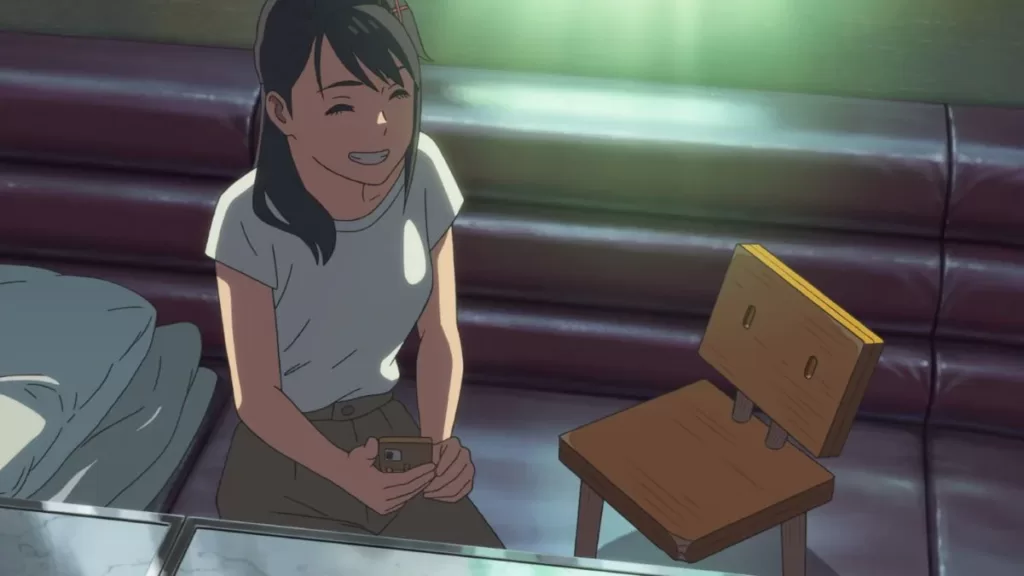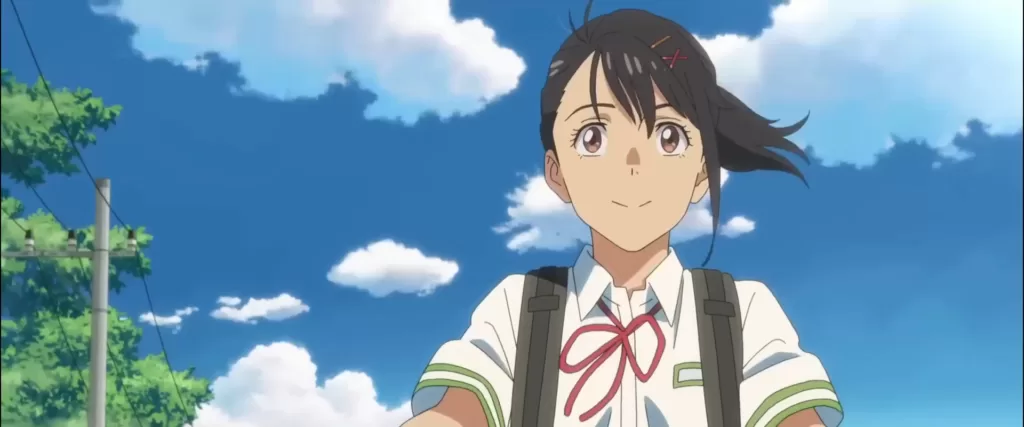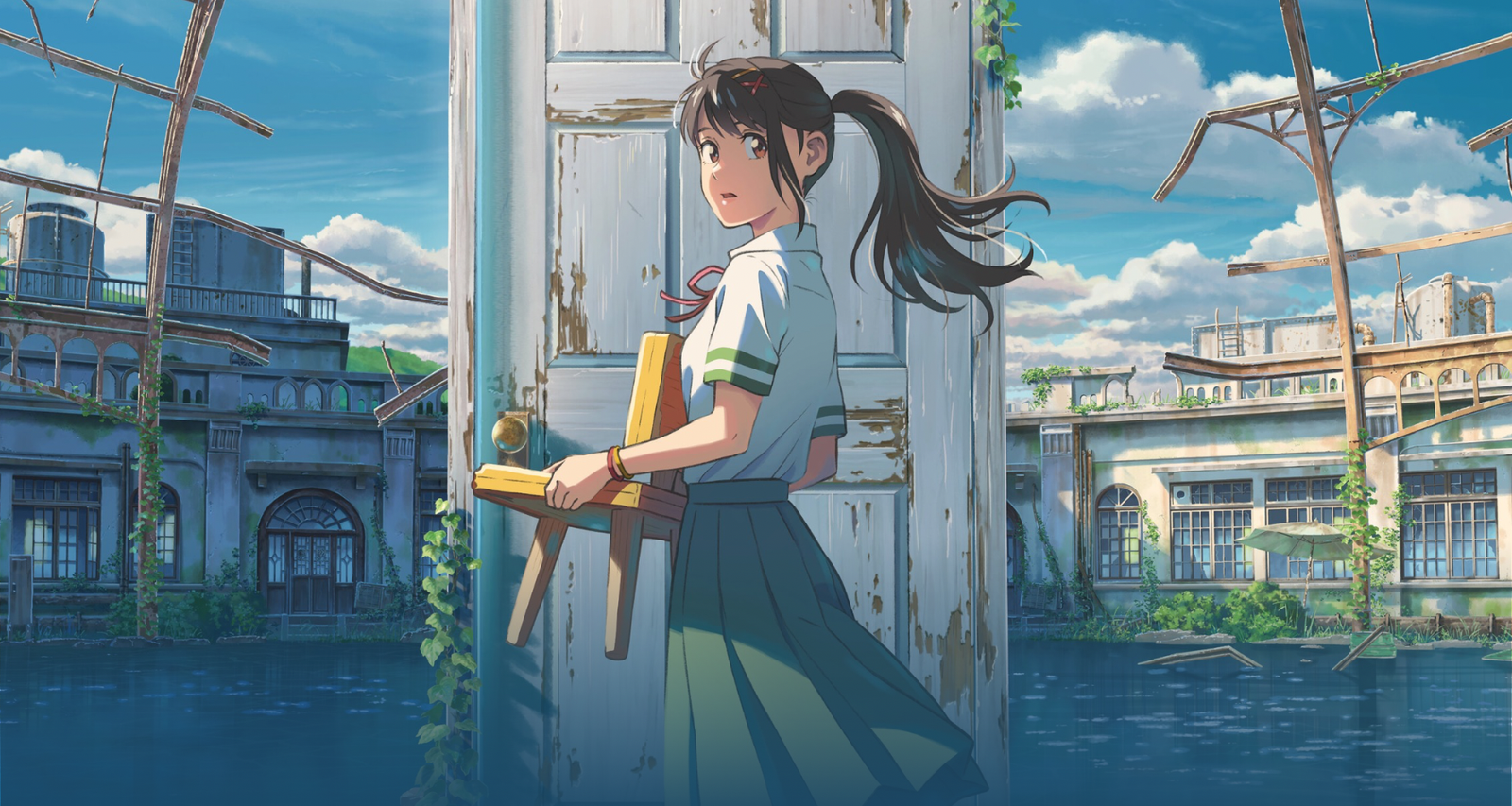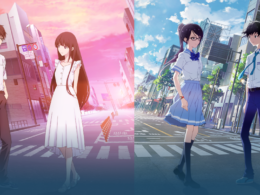Makoto Shinkai has been on a tear with his recent release of films like Weathering With You and Your Name. His latest project, Suzume, has been met with both high anticipation and expectation on the global stage. Despite not being fully into its United States release, the film has already reached over $250 million globally—currently sitting as the fourth-highest grossing anime film of all-time.
Suzume once again shows that Shinkai can bring stunning visual sights onto the big screen. This film struggles, however, in its change of themes, plot, and overall message, as each act feels like a different movie.
*Warning: Spoilers ahead for Makoto Shinkai’s Suzume*
A three-legged chair of story ideas

Shinkai uses similar storytelling techniques when it comes to the majority of his films. They often start ground level; a simple story to introduce us to the characters. Then, as time goes on, the fantastical and supernatural takeover on a grand stage, typically complimenting the motives or themes that his stories provide.
Suzume struggles on its ground level, as the overall theme of the movie seems to shift between acts. The story revolves around its main protagonist, Suzume, who loses her mother at a young age. Suzume is taken in by her aunt as a parental guardian and grows up in her household.
The movie then quickly turns mystical, as Suzume meets a young man named Sōta. Sōta is tasked with closing doors that serve as portals around Japan in order to stop a giant supernatural worm from causing world-ending earthquakes. After a chain of events that include Suzume accidentally freeing a keystone that turns into a real-life cat, Sōta’s consciousness is transferred by the cat to a three-legged chair—a childhood memento of Suzume’s.
We then follow Suzume and Sōta as a walking, talking three-legged chair, chase after the cat in an attempt to place the keystone back where it belongs, while continuously defending the worm from breaching into the real world.
If this all sounds like a lot, that’s simply because it is! The origin of the tale comes from the Namazu—a piece of Japanese folklore about a giant catfish that causes earthquakes. While this plays out like a fun adventure chasing down a (living) MacGuffin, it takes away from the principle that Shinkai is trying to tell.
A story of self discovery or a story of closure?

Much of this chase to find the cat, named Daijin after a rise in social media popularity, revolves around Suzume’s absence from her home and aunt. Among her travels, she meets several kind people on the road who see her as a runaway, though the loss of her mother at a young age is not explored further.
The moments with these kind strangers are lighthearted and fun, until another portal inconveniently opens and her and Sōta have to close it. The standout of these strangers is a woman named Rumi, a local bar owner and mother of two. Her kids have a lovingly playful relationship with Suzume; watching her try to explain a walking/talking chair to two young kids provides some good chuckles. Moments like these deliver great arcs of self discovery and wonder, but the layer of onion is peeled for something deeper.
Shinkai’s movies often have heavy hitting emotional beats, and in the end, the themes of this movie are about closure—much like all the doors Suzume and Sōta close throughout the film.
Closure occurs at several points in this movie, most notably between Suzume and her late mother. By the end, Suzume has to come to terms with her younger self, still thinking that her mother is alive after a tragic tsunami hits her region when she is only four years old.
We also see closure between Suzume and her aunt, as Aunt Tamaki eventually reveals that she feels much of her life is wasted by choosing to be Suzume’s guardian, rather than living a full life in her 20s and 30s. The two come to terms after a screaming match and realize that they will always be there for one another.
Poetry, often shown and not explained

Shinkai’s films have consistently been nothing short of beautiful. The visuals are downright stunning, and Suzume is no exception. The water moves and sparkles as if real. We occasionally get wild images of the fantastical, as we see the giant worm create a cyclone around the Tokyo skyline. Where the film shines the most, however, is in the Ever-after, a realm where souls go after death.
The purple sky of millions of stars is worth seeing on the biggest screen possible. Shinkai takes the amazing cosmic skylines from scenes in Your Name and ramps it up to 11. Simply put, fans of Shinkai will be beyond pleased with what they see on screen. The Daijin is adorably animated and complimented well by both the Japanese and English voice actors.
Much of this movie plays out like poetry, often shown and not explained. The visual cues are all on point; top class work from the entire team involved.
The verdict on Suzume
In the end, I wanted to like Suzume much more than I did. I have adored Shinkai’s movies in the past, and this one passes as simply good, not great. There is so much potential for its themes of closure and self discovery. Unfortunately, the heavy emotional beats of this movie are overshadowed by the supernatural elements that don’t compliment what the story is trying to tell.
Suzume is still enjoyable, and it is a pleasure to be able to view any Makoto Shinkai film on the big screen whenever possible. Visually, it is a masterpiece. I was hoping for another storytelling hit like Your Name (available on Crunchyroll), alas, it doesn’t quite reach those expectations I put on it.
Stay up to date with the latest news and reviews on the Agents of Fandom socials.
'Suzume' Review
'Suzume' Review-
Visuals5/5 Amazing
-
Story2.5/5 Passably
-
Enjoyment3.5/5 Normal











